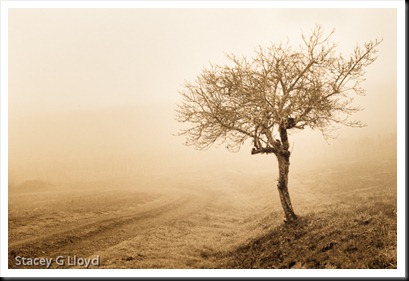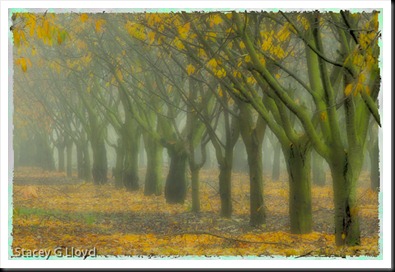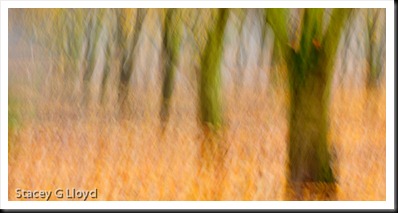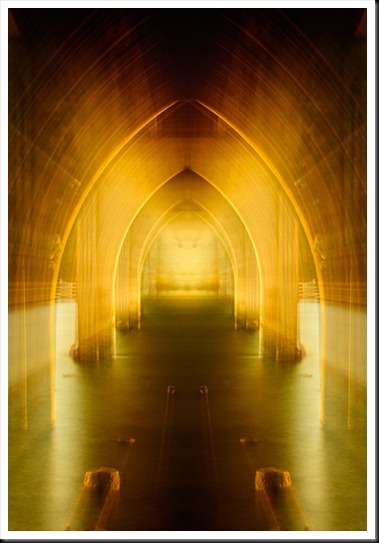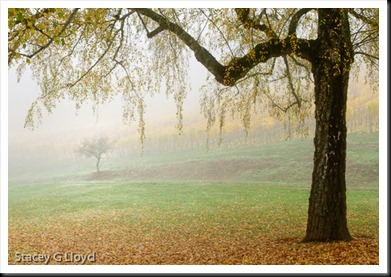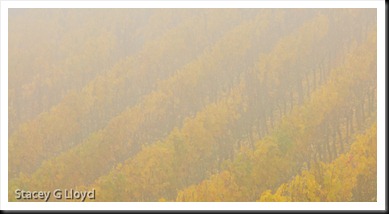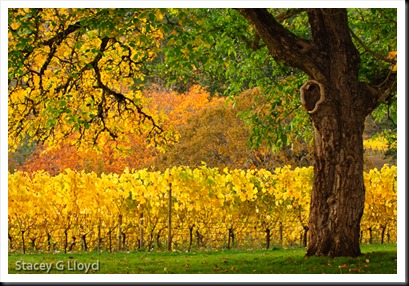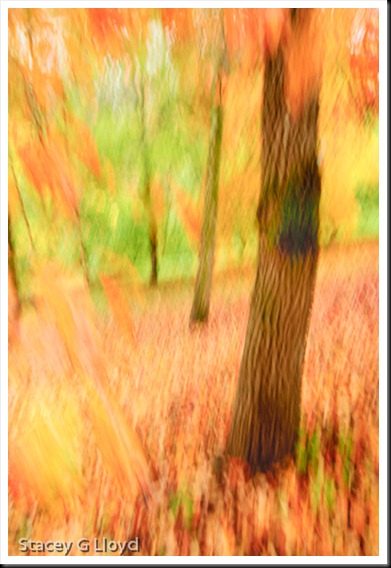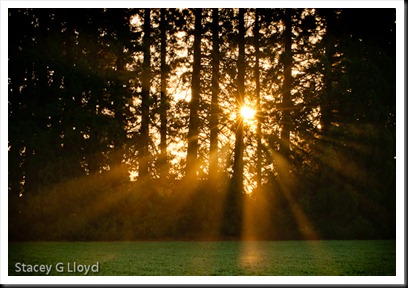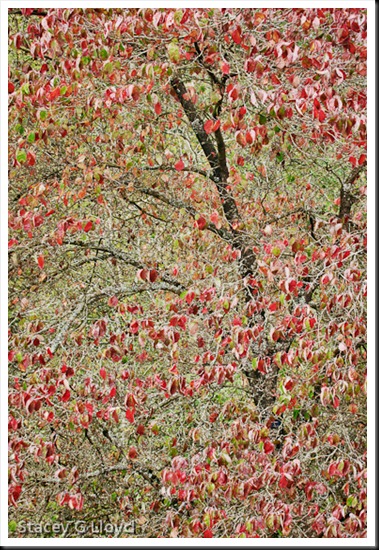I was once told that the best selling photograph of all time was the picture of a fence zig zagging to a tree in the fog – you may have seen it in frame stores, etc. I don’t know that that is true, but I can definitely understand the appeal. A copy of that photograph hung in my office for a while as an inspiration piece. Maybe that is why I shoot so many trees in the fog? The blog image is a recent example that I shot in the vineyard near my home. There are vines out there in the distance, but you can’t see them (and you weren’t suppose to).
Blog image: Sepia toned with some burning in (darkening) of the sky/fog around the tree. A little contrast added to the tree to make it pop out a little better.

